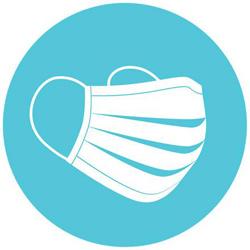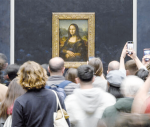You are here
Facial expert gives ‘maskne’ prevention tips
By Maria Weldali - Apr 28,2021 - Last updated at Apr 28,2021

Image courtesy of pixabay.com
AMMAN — Among the new words and phrases brought on by the pandemic is “maskne”, which means mask-induced acne.
Maskne was not even a term several months ago, but now it is a part of many people’s lexicon, Sana Hussein, a Jordanian facial expert, told The Jordan Times on Tuesday.
In times of the pandemic, wearing a face covering is essential to slow the spread of the virus, but it has had reverse impacts on facial skin, Hussein said.
Trapping in heat and sweat, cloth face coverings create a humid environment for acne to thrive and allow the build-up of bacteria, sweat and dirt, which aggravates existing skin conditions and may lead to new breakouts, according to Hussein.
Furthermore, Hussein said that friction and prolonged rubbing of the mask against the skin, causes irritation and chafing in some cases.
To prevent mask-related skin problems, Hussein advised wearing the right cloth covering, washing it regularly, avoiding makeup and instead opt for sunscreen and lightweight face products. Hussein also advised maintaining a “nourishing skin care routine”, as well as using fragrance-free products for face cleansing.
“Makeup lovers could expose their eyes with mascara and eyeliner, to have a flawless look while wearing a face mask,” she said, noting that if individuals develop “maskne”, they should not use face masks and scrubs, instead use gentle cleanser.
Hala Bashiti, a Jordanian tailor who recently switched to making face masks for her family and relatives, said that most face masks are made out of rough fabrics that have adverse effects, “therefore it is of utmost importance to check the material before buying or ordering a face covering”.
The fabric that feels good on the face is cotton. It is a natural fibre that is breathable and soft on the skin, according to Bashiti, adding that it is best to avoid using scented detergents when washing masks to minimise the probability of face irritation when the mask is worn.
Batoul Khatatneh, a Jordanian citizen, told The Jordan Times that “as I wear my face mask for an extended period of time, I experience facial rashes on my chin and cheeks”.
In the last couple of months Khatatneh experienced “maskne”, but she built up a skin care routine that fits her skin type, which helped her reduce the negative effects of wearing masks.
Related Articles
Although acne is commonly thought of as a problem of teens, it can occur at any age.
Healthy, glowing skin does not happen by itself, and 2024 is the time to step up with your skincare routine and create new habits that will help you achieve the skin of your drearms.
AMMAN — Dozens of Jordanian women who are in prison for failing to repay debts could be released during the fasting month of Ramadan thanks


















